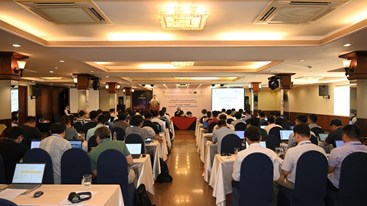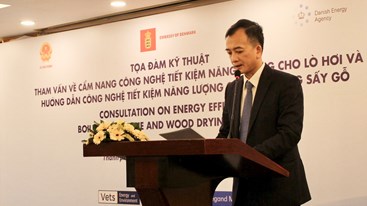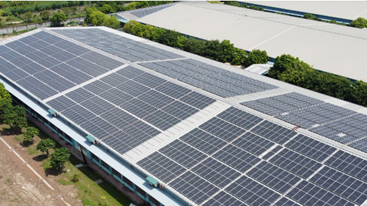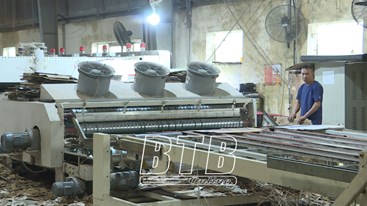Currently, many offices and businesses are using energy wastefully, causing double loss to themselves and to the national economy. Businesses in the industrial sector are leading in energy waste and having the energy - ratio higher than world’s and regional averages. However, they have not been aware of energy audit as a measure to identify the energy saving solutions in production.
A proper understanding of the energy audit
The Prime Minister, on 2nd October, approved the National Target Program on energy efficiency and conservation, period 2012-2015. Accordingly, a specific target of the program is to "train and grant energy audit certificates to about 200 people". Similarly, the Law on energy efficiency and conservation also regulates that all State businesses and offices have to conduct energy audits every three years to assess the effectiveness of energy use, and take measures to remedy the weaknesses in order to use energy efficiently. This demonstrates the importance and effectiveness that energy audit brings has begun to be appreciated.

Energy audit is understood as activities to assess the status of the energy system in the enterprise, thereby identifying the energy wasting areas and providing solutions for efficient energy use. This will help businesses identify trends of energy consumption and energy saving potential of various types of equipment such as motors, pumps, ventilation, air conditioning, steam and temperature systems, DO and FO system, etc.
There are two forms of energy audit, namely Walk Through Assessment and Energy Survey and Analysis. Walk Through Assessment is a preliminary survey of energy process of the system. It aims at identifying and evaluating energy saving opportunities and potential of the main energy-using devices in the system. This activity can detect at least 70% of energy savings opportunities in the system.
Energy Survey and Analysis consists of survey, collection, and analysis of energy consumption data in the past and at present, detecting the energy savings opportunities in more detail.
With these activities, consultants will help businesses establish a detailed report on the current status of energy use in each stage of production, and each piece of production line equipment. Then, energy auditors will evaluate the potential of energy savings, find out causes of waste in the process of energy use in businesses and suggest solutions for using power in the most effective way. This will help businesses reduce fuel input costs, lower production costs, and increase competitiveness of the product.
Current shortage and weakness
Since 2012, nearly 1,200 energy-intensive businesses have become subject to an energy audit. Most of them are in the industry sector with the average power consumption of over 3 million kWh / year. The energy audit program in 2012 aims to save 10% of power in industrial production.
Although energy audits are effective tools to perform energy savings, the number of entities wishing to perform the audit is not large while the efficiency brought about by audit is not well-appreciated.
According to Mr. Dao Hong Thai, Director of the Hanoi Center for Energy Conservation (ECC HN), "the energy audit still weak both in terms of human and material resources. Energy audit is still relatively new to our country, and experience level of the work team is also limited. Examples are the accuracy of the audit data in the analysis stage energy efficiency, consumption levels, potential energy savings, etc".
As for the awareness of the business, "many businesses are still not really aware of the importance of energy audits. Only those in the list of key energy facilities are interested in the energy audit report as a necessary and sufficient condition to ensure the legal requirements for production and business activities. The number of enterprises enlisted as ‘to be encouraged to apply the Law on conducting energy audits’ is still very limited”, said Mr. Vu Ngoc Tuyen, Director of Systech Energy Development Co., Ltd., one of the pioneers in the field of energy audit.
That enterprises use outdated technology, design is not optimal, or activities are ineffective is the major cause of energy loss. In particular, the modernization of equipment, machinery, personnel qualification standardization of enterprise energy management after the audit has not been given due attention.
Thus, in the future, energy consuming businesses are required to audit, regardless of their will. It is their own benefit. Through energy audits, businesses can build a roadmap for short-term and long-term energy savings with ultimate result of reducing energy costs and increasing competitiveness. Consequently, energy audit will be fruitful at the macro level as it contributes to ensuring national energy security, as well as to reducing emissions into the environment.
|
In
production and business activities, energy costs typically make up 30-50% of
the product costs. Using energy efficiently also means lower production
costs, raising competitiveness in the market. However, local businesses are
facing many challenges because energy consumption ratio per product is always
1.5 - 2.5 times higher than similar products made by countries in the region.
|
By Minh Chau






.png?w=367&h=206&mode=crop)


.jpg?w=367&h=206&mode=crop) Energy efficiency and conservation usage is an important aspect of the national energy development strategy
05/03/2024
Energy efficiency and conservation usage is an important aspect of the national energy development strategy
05/03/2024
 Challenges and Opportunities to promote energy efficiency market in Vietnam
Challenges and Opportunities to promote energy efficiency market in Vietnam
 The Ministry of Industry and Trade requests government agencies to coordinate in organizing Earth Hour 2024
The Ministry of Industry and Trade requests government agencies to coordinate in organizing Earth Hour 2024
 Consultation on Energy Efficiency Boiler Catalogue and Wood Drying Guideline
Consultation on Energy Efficiency Boiler Catalogue and Wood Drying Guideline
.png?w=367&h=206&mode=crop) Request for expression of interest - C2.1.13: Capacity Building on energy efficiency policies development
Request for expression of interest - C2.1.13: Capacity Building on energy efficiency policies development
 Son Ha Co., Ltd, applies energy efficiency and conservation measures
Son Ha Co., Ltd, applies energy efficiency and conservation measures
 Phuc Kien Co., Ltd., is effectively implementing energy-saving measures
Phuc Kien Co., Ltd., is effectively implementing energy-saving measures
 Request for expression of interest - C2.1.12: Independent monitoring of safeguards implementation
Request for expression of interest - C2.1.12: Independent monitoring of safeguards implementation